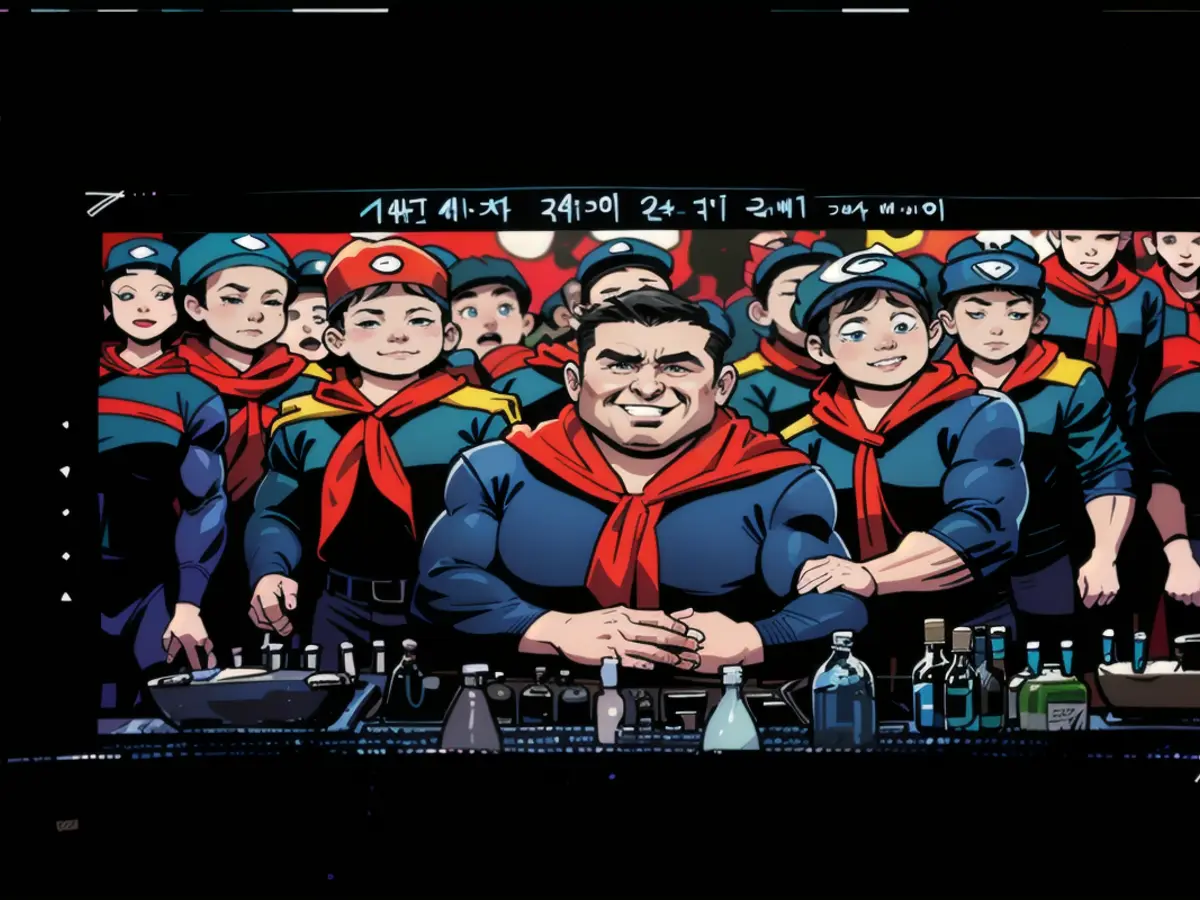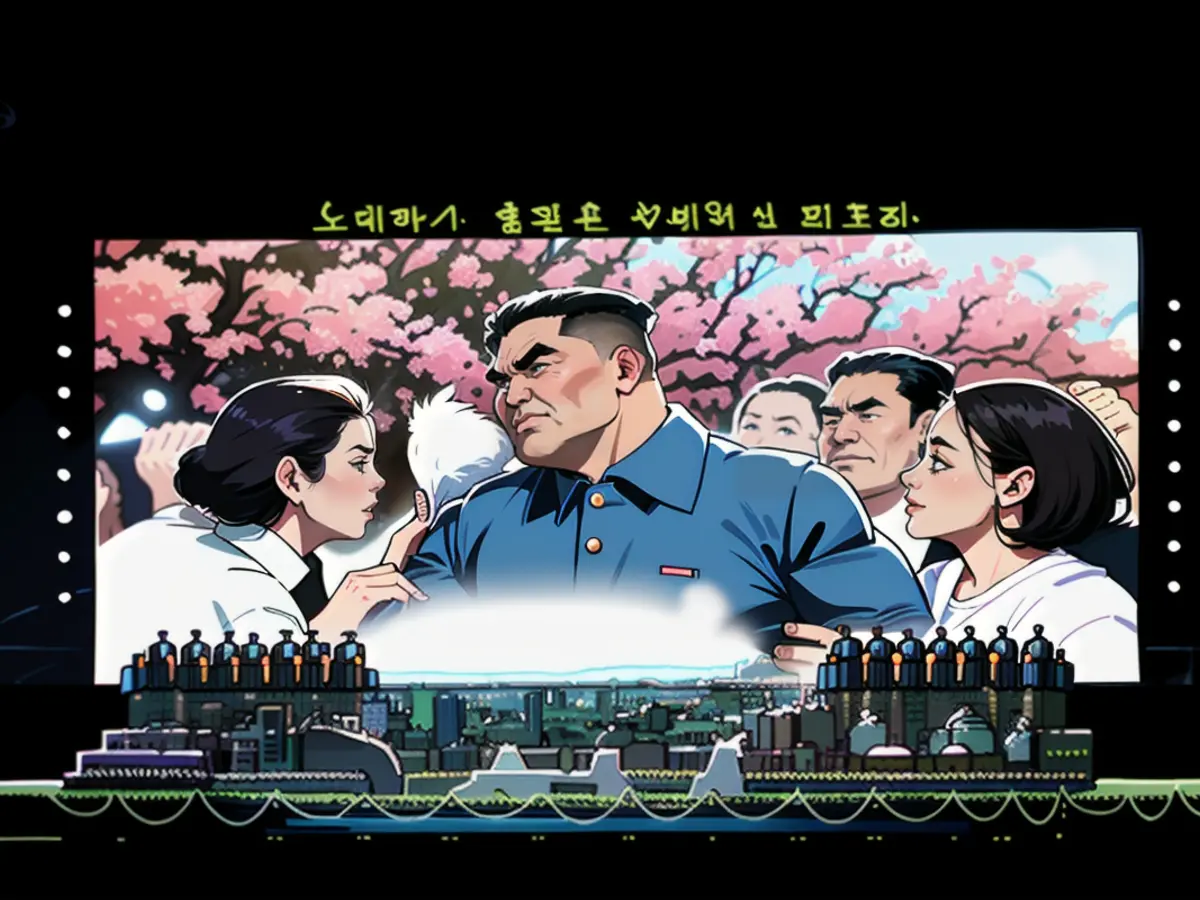Why is South Korea prohibiting a trendy song that recently spread on TikTok?
On Monday, Seoul's media regulator announced that it was banning access to various versions of "Friendly Father," an upbeat propaganda song that became a unexpectedly popular sensation on social media.
The song premiered during a nighttime event in April to celebrate the completion of a housing project in Pyongyang, as reported by the North Korean state-run news agency, Korean Central News Agency. In the song's lyrics, Kim Jong Un, the leader of one of the world's most authoritarian nations, is described as a "great leader and a kind parent." The accompanying music video features North Koreans excitedly singing along to an orchestral tune, praising Kim for his loving care.
While North Korean propaganda may not be unusual, the twist with "Friendly Father" is that it was posted on the popular video-sharing app TikTok, owned by the Chinese tech giant ByteDance. The song took the internet by storm as content creators from around the world created their own unique interpretations, adding dance moves and humorous captions to their one-minute clips, resulting in over 2 million views.
But this wasn't necessarily a propaganda victory for Pyongyang.
Alexandra Leonzini, a researcher studying North Korean music at the University of Cambridge, pointed out that "this isn't Gen Z suddenly supporting the regime." Instead, users were mocking the regime, not cheering it on.
"It wasn't meant to be propaganda," she told the press. "They're laughing at the regime, not with the regime."
Despite this, South Korean officials moved to censor the parodies. The Korea Communications Standards Commission blocked 29 videos of the song, as requested by Seoul's National Intelligence Service. Some versions of the song on YouTube, however, remain accessible to users in the South.
"The video is typical of the type of content used in psychological warfare against South Korea," explained the South Korean regulator. "It's posted on a channel designed to be seen by the outside world and mostly focused on idolizing Kim."
This move is in line with South Korea's National Security Act, which restricts access to North Korean government websites and media and penalizes behavior that promotes the autocratic nation and its nuclear-armed neighbor.
According to Ha Seung-hee, a visiting professor of North Korean studies at Dongguk University, more than 90% of propaganda songs in North Korea revolve around glorifying the leader. "Friendly Father" is no exception.
However, the production quality of the video suggests a possible shift in the country's propaganda strategy.
"In the past, North Korea's music videos would show nature and scenery, like what you'd find at a karaoke with subtitles," Ha said. "But now, it's changed. 'Friendly Father' appears to use better choreography and video editing."
The Korean Peninsula has been divided since the end of the Korean War in 1953, with an armistice signing a temporary ceasefire. Despite this, both nations have pursued the ultimate goal of reunification and regard each other as hostile adversaries.
Millions of North Koreans endure life in impoverished conditions under a hereditary totalitarian dictatorship that has lasted for over seven decades under the Kim dynasty. The regime maintains a tight control over food rations, education, and employment, and people are often assigned to painful work camps.

Read also:
- This will change in December
- Dikes withstand water masses so far - Scholz holds out the prospect of help
- Fireworks and parties ring in 2024 - turn of the year overshadowed by conflicts
- Attacks on ships in the Red Sea: shipping companies avoid important trade route
The song's popularity on TikTok spread beyond Asia, attracting content creators globally. Despite North Korea's intentions, the song's use on TikTok was more about mockery than support of the regime in Asia.
Source: edition.cnn.com







